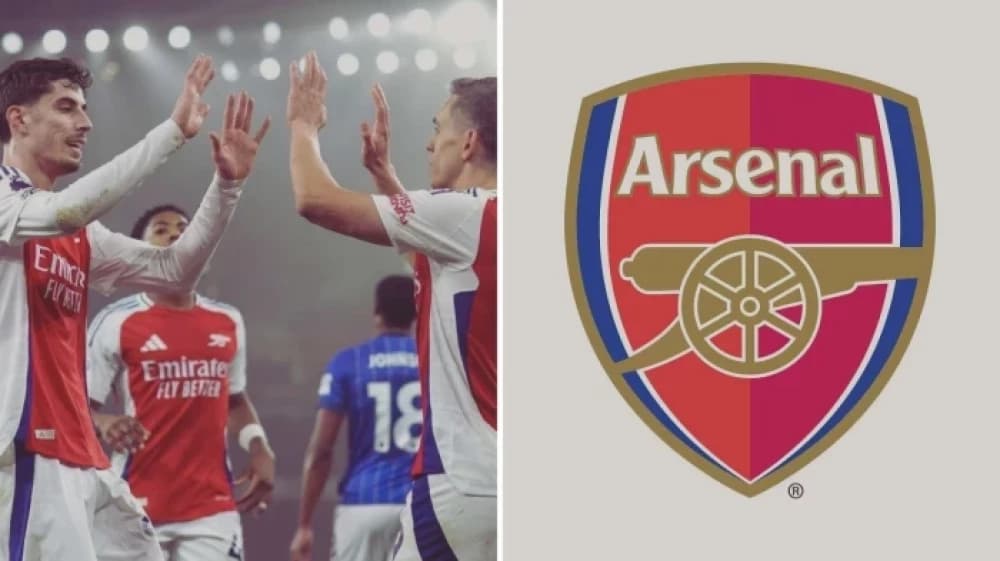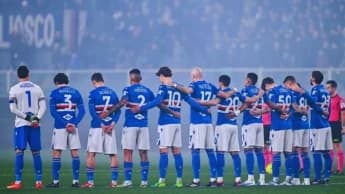Arsenal Football Club: A Legacy of Excellence, Innovation, and Global Passion

From the Royal Arsenal to the Emirates Stadium – Celebrating Over a Century of Football Greatness
Introduction: A Storied Legacy
Arsenal Football Club, commonly known as Arsenal, stands as one of the most iconic and successful clubs in English football history. Founded in 1886 by workers from the Royal Arsenal munitions factory in Woolwich, South East London, the club initially took the name Dial Square before becoming Royal Arsenal and finally adopting its current name in 1914. Over the decades, Arsenal has built a legacy defined by resilience, innovation, and excellence both on and off the pitch.
Home Grounds: Highbury to the Emirates
Arsenal’s home matches are played at the Emirates Stadium, a state-of-the-art facility in Holloway, London, with a seating capacity of over 60,000. Since 2006, the Emirates has replaced the historic Highbury Stadium, where the club played from 1913 to 2006. Highbury, with its unique Art Deco design, holds a special place in Arsenal’s history, remembered for hosting countless memorable matches. The club’s iconic red and white colours, inspired by Nottingham Forest, and the cannon emblem, reflecting its military roots, remain enduring symbols of its identity.
Trophies and Achievements: A Record of Excellence
Arsenal is one of the most decorated clubs in English football, boasting 13 English league titles, including the unforgettable 2003-04 "Invincibles" season, where the team went unbeaten throughout the Premier League campaign. The club has also won the FA Cup a record 14 times, more than any other team, and has multiple Community Shield titles. On the European stage, Arsenal claimed the European Cup Winners’ Cup in 1994 and reached the UEFA Champions League final in 2006, as well as making two appearances in the UEFA Europa League final.
The Wenger Era: Revolutionizing English Football
The modern era of Arsenal is defined by the transformative impact of Arsène Wenger, who managed the club from 1996 to 2018. Wenger revolutionized English football with his innovative tactics, focus on nutrition, and emphasis on youth development. Under his leadership, Arsenal played an elegant, attacking style of football that became synonymous with the club. Wenger’s most notable achievement was guiding the team through the "Invincibles" season, an accomplishment that remains unmatched in the Premier League era.
Iconic Players: Legends of the Game
Throughout its history, Arsenal has been home to some of football’s most iconic players. Thierry Henry, the club’s all-time leading scorer, dazzled fans with his flair and consistency, while Dennis Bergkamp’s creativity and intelligence earned him legendary status. Other notable figures include Tony Adams, a commanding captain and defensive stalwart, Patrick Vieira, whose leadership and dynamism defined an era of success, and modern stars like Bukayo Saka, who embodies the club’s renewed vision under current manager Mikel Arteta.
Global Fanbase: The Gooners
Arsenal enjoys a global fanbase, with supporters often referred to as "Gooners." The passion and loyalty of Arsenal fans are unmatched, filling the Emirates Stadium with energy and maintaining vibrant fan communities worldwide. The club’s influence extends beyond football, resonating in popular culture, fashion, and media, further cementing its status as a cultural icon.
The Arteta Era: A Resurgence
Under Mikel Arteta’s management, Arsenal is undergoing an exciting resurgence. The team has focused on a mix of experienced players and young talent, showcasing tactical discipline and attacking flair reminiscent of the club’s proud traditions. With stars like Martin Ødegaard, Gabriel Jesus, and Gabriel Martinelli leading the charge, Arsenal aims to reclaim its place among Europe’s elite clubs and add to its storied legacy.
Social Responsibility: Beyond the Pitch
Arsenal is also known for its strong sense of social responsibility. Through initiatives like the Arsenal Foundation and Arsenal in the Community, the club actively engages in education, social inclusion, and charity work. Projects such as the "No More Red" campaign against knife crime and efforts to promote sustainability at the Emirates Stadium exemplify Arsenal’s commitment to using its platform for positive change.
Conclusion: A Symbol of Tradition and Innovation
Arsenal Football Club stands as a symbol of tradition, innovation, and excellence. With a rich history, a passionate fanbase, and an ambitious vision for the future, the club remains one of football’s most iconic institutions. Its motto, "Victory Through Harmony," encapsulates the spirit of Arsenal—a club united in pursuit of greatness, both on and off the pitch.
Team History
1886: The Foundation of Arsenal
Arsenal Football Club began its journey in October 1886 when a group of workers from the Royal Arsenal munitions factory in Woolwich formed a football team named Dial Square. The club’s first match took place on December 11, 1886, against Eastern Wanderers, which they won 6-0. Shortly after, the team adopted the name Royal Arsenal, reflecting its industrial heritage.
1913: The Move to North London
Financial difficulties and limited attendance in Woolwich prompted the club to relocate to Highbury Stadium in North London in 1913. This move, orchestrated by chairman Sir Henry Norris, was a strategic decision to attract a larger fanbase. In 1914, the club officially dropped "Woolwich" from its name, becoming simply Arsenal Football Club.
1925-1934: The Herbert Chapman Era
The appointment of Herbert Chapman as manager in 1925 marked the beginning of a golden era for Arsenal. Chapman introduced the revolutionary WM formation and modernized the club’s image, including the introduction of the famous red shirts with white sleeves. Under his leadership, Arsenal won their first major trophies, including the FA Cup in 1930 and the First Division title in 1931.
1930-1939: The Golden Era
The 1930s were a defining decade for Arsenal, as the club established itself as the most successful team of the era. Arsenal won five First Division titles and one FA Cup during this period, with legendary players like Cliff Bastin, Ted Drake, and Alex James leading the charge.
1946-1953: Post-War Success and Struggles
After World War II, Arsenal achieved notable successes under manager Tom Whittaker, including winning the First Division title in 1948 and 1953, and the FA Cup in 1950. However, the period was marked by inconsistency as the club navigated the challenges of a changing football landscape.
1970-1971: European Glory and the First Double
Under manager Bertie Mee, Arsenal won the Inter-Cities Fairs Cup in 1970, their first European trophy. The following season, Arsenal achieved the League and FA Cup Double, a rare accomplishment in English football.
1986-1995: The George Graham Era
George Graham’s tenure as manager brought Arsenal a new era of success, characterized by defensive discipline and silverware. During this period, the club won two First Division titles, the League Cup, and the European Cup Winners’ Cup.
1996-2018: The Arsène Wenger Revolution
Arsène Wenger’s arrival in 1996 revolutionized Arsenal and English football. Wenger introduced an attacking style of play and modernized the club’s approach to fitness and nutrition. Under his leadership, Arsenal won three Premier League titles, including the "Invincibles" season, and seven FA Cups.
2019-Present: The Arteta Era and Rebuilding
Mikel Arteta took over as manager in December 2019, tasked with restoring Arsenal’s fortunes. Under his leadership, the club has focused on youth development and tactical innovation, aiming to return to the pinnacle of English and European football.
Infrastructure and Player Development
Training Facilities: State-of-the-Art Development Centers
The Arsenal Training Centre in London Colney is one of the most advanced training facilities in the world. Opened in 1999, the center features state-of-the-art pitches, recovery facilities, and gymnasiums, ensuring players are prepared to compete at the highest level.
Youth Academy: A Tradition of Talent Production
The Hale End Academy has produced some of Arsenal’s most iconic players, including Tony Adams, Ashley Cole, and Bukayo Saka. The academy emphasizes holistic player development, combining technical skills with education and character building.
Investment in Players: Balancing Youth and Experience
Arsenal’s transfer strategy focuses on a mix of youth development and strategic acquisitions. The club has invested in young talents like Bukayo Saka and Emile Smith Rowe, while also signing experienced players like Thomas Partey and Gabriel Jesus to strengthen the squad.
Team Achievements
League Titles
Arsenal has won 13 English league titles, including the historic "Invincibles" season in 2003-04. The club’s success in the Premier League era has been defined by periods of sustained excellence under managers like Arsène Wenger.
Domestic Cup Success
Arsenal has won the FA Cup a record 14 times and the League Cup twice. The club’s dominance in domestic cup competitions has been a hallmark of its history.
European and Continental Trophies
Arsenal’s European achievements include the Inter-Cities Fairs Cup in 1970 and the UEFA Cup Winners’ Cup in 1994. The club has also reached the UEFA Champions League final in 2006 and the UEFA Europa League final in 2019.
Individual Player Awards
Arsenal has produced some of the greatest players in football history, including Thierry Henry, Dennis Bergkamp, and Patrick Vieira. These players have won numerous individual accolades, including the PFA Player of the Year and the Premier League Golden Boot.
Rivalries and Key Matches
The North London Derby: Arsenal vs. Tottenham Hotspur
The North London Derby is one of the most passionate rivalries in football. Matches between Arsenal and Tottenham are fiercely contested, with bragging rights in North London at stake.
Arsenal vs. Manchester United
The rivalry between Arsenal and Manchester United defined an era of English football. Matches between the two clubs were filled with drama, aggression, and memorable moments.
Arsenal vs. Chelsea
The rivalry with Chelsea intensified after Roman Abramovich’s acquisition of the club in 2003. Matches between Arsenal and Chelsea represent a clash of philosophies, with Arsenal’s focus on youth development contrasting with Chelsea’s financial power.
Memorable European Nights
Arsenal’s European campaigns have provided some unforgettable moments, including the 2006 Champions League final and the 2012 comeback against AC Milan.
Fanbase, Community, and Club Anthems
The Global Arsenal Fanbase
Arsenal’s fanbase, known as "Gooners," is one of the most passionate and loyal in football. The club’s global appeal has grown through successful periods and international tours, creating a vibrant community of supporters worldwide.
Fan Traditions, Chants, and Songs
Arsenal’s matchday traditions include iconic chants like "One-Nil to the Arsenal" and "We Love You Arsenal." The club’s anthems, such as "The Wonder of You" and "Good Old Arsenal," reflect the pride and passion of its supporters.
Community Involvement
Arsenal is deeply committed to its local community, with initiatives like the Arsenal Foundation and Arsenal in the Community. The club uses its platform to promote education, social inclusion, and charity work.
The Present and Future
Current Season: Reclaiming Glory
Arsenal is determined to reclaim its place among the football elite, with strong performances in the Premier League and a return to the UEFA Champions League. The team’s mix of experienced players and young talent has created a balanced and competitive squad.
Mikel Arteta’s Vision: Building a Modern Arsenal
Mikel Arteta’s leadership has given Arsenal a renewed sense of purpose. His tactical philosophy and emphasis on youth development have laid the foundation for long-term success.
Future Ambitions: A Roadmap for Success
Arsenal’s ambitions include winning the Premier League and competing for European glory. The club’s commitment to sustainability, community engagement, and global outreach ensures it remains a leader in football.
Conclusion: A Legacy of Greatness
Arsenal Football Club’s rich history, passionate fanbase, and ambitious vision for the future make it one of the most iconic institutions in football. With a legacy built on success, innovation, and a commitment to the sport’s core values, Arsenal continues to inspire fans and shape the landscape of football for generations to come.






